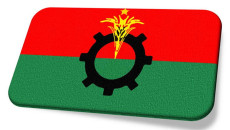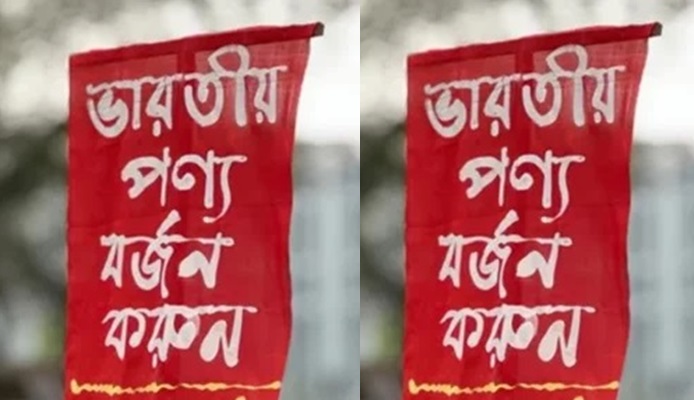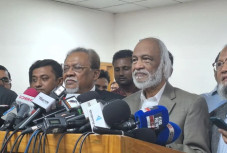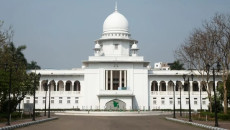
Juyel Raaj
28 April, 2024 03:24
What is boycott India and why?

Photo: Collected
In the context of Gaza and Israel, when the world stands beside the ordinary people of Palestine against Israel's attacks and human rights violations in Gaza, suddenly we see a group emerging in Bangladesh as an alternative under the name of "India Boycott" through social media. It takes a few days to understand what India Boycott actually means. I couldn't quite grasp the essence of it, and I wanted to explore who initiated this discussion regarding the deterioration of Bangladesh-India relations.
Whether it's an individual, a product, or a nation, anyone can boycott if they wish. Boycotting various individuals in our personal lives is a natural process. But when it comes to two nations, and especially neighboring countries, things become complex. There arise arguments, discussions, gratitude, or ingratitude. Boycotting Israel from a thousand miles away is much easier than boycotting India from Bangladesh.
Bangladesh has various issues with India as a neighboring country. Some are speculated, some are unresolved. The issue of border killings and disputes is highly debated. But under no circumstances is boycotting India as straightforward as boycotting Israel.
Those who have initiated this boycott theory through social media have a general perception among the common people. They start spreading it through social media, whether from Australia or France. But the internal reality of Bangladesh is entirely different. Just last week, I saw news that twelve thousand tourists returned from India within three days. The situation at the Indian visa office in Bangladesh was as surprising as the situation of a huge line. Due to delayed visa issuance and short-term visas, people are rather expressing frustration towards India than supporting the boycott. In such circumstances, how much the India Boycott movement aligns with reality or how viable it is as an alternative to India remains a question.
What are the benefits and drawbacks of boycotting India? The primary goal of the India Boycott movement is to boycott Indian products continuously. This results in a loss in trade for the country and economic damage. According to a report from Bangladesh Bank, Bangladesh imported goods worth $8.916 billion in the 2021-22 fiscal year, with imports from India amounting to $1.369 billion. During the same fiscal year, Bangladesh exported goods worth $1.99 billion to India. In 2022, India's total imports were $723 billion, or $72.3 billion.
According to a report by Economic Times, Bangladesh is India's fifth-largest export destination. Despite being a small economy compared to India, Bangladesh imports significantly from India. Mostly due to geographical proximity, Bangladesh's imports from India are so high. It requires less time and expense. However, India is not the largest source of imports for Bangladesh; that place now belongs to China in terms of products.
The report further states that by the end of the fiscal year, India's total exports will stand at $3.4 trillion, of which foreign trade will account for 48 percent. However, the quantity of service exports is higher than that of goods. Despite being the fifth-largest trading partner of Bangladesh, Bangladesh is not among the top 10 sources of imports for India. This means that rather than goods, India now exports more services, machinery parts, and production inputs to Bangladesh. Altogether, boycotting India seems much more complex than the initial perception.
On April 22nd, a human chain was organized in front of the National Press Club in Bangladesh under the banner of a nationalist new party to demand the boycott of Indian products and to demand an election under a constitutional government. The council's advice to BNP Chairman and councilor Jayanul Abedin Farooq was that until democracy is restored in the country, the 'boycott of Indian products' movement will continue uninterrupted. The boycott of Indian products is ongoing and will continue. We are not against you (Indian government), we are against your government. Many poor people from Bangladesh are in India, and democracy activists are also in India; we support them too. Jayanul Abedin Farooq said, "You are assisting in the killing of democracy in Bangladesh by taking us (the Indian government) against us. So we don't agree with you.
When the most familiar faces politically organized a protest under the banner of a human rights organization titled "Boycott India" in front of the Indian Embassy, the matter became clearer. And the statements made by the organizing committee in the media mainly followed the words of BNP leader Jayanul Abedin Farooq.
So boycotting India actually seems to be a political agenda of BNP. It seems they've brought the issue to the field to keep their workers engaged. Even in the upcoming upazila elections, BNP is not participating in a cohesive manner. Although the party leaders are abiding by the directive, it doesn't seem like it. I saw news that six BNP candidates won in the four upazilas of Sunamganj. The picture is not very different from the whole of Bangladesh.
My opinion is that boycotting Israel and India issues have been brought together as a turning point by BNP workers. They have brought their political skill to keep their workers engaged. To boycott India, Bangladesh needs to reduce its dependency on India first. It's not just about words, it's not possible overnight. For example, it's not possible for Bangladesh's freelancers to boycott Israel.
Bangladesh is earning one billion dollars annually from the freelancing sector. Sixty-four percent of the world's top-rated freelancers are Bangladeshis. Sixty-four percent of the world's freelancing market is worth a trillion dollars. Bangladesh is ranked second in terms of supplying labor. And India controls all of this freelancing.







 সিলেট সিপিবি সাধারণ সম্পাদক সুমন ‘আটক’
সিলেট সিপিবি সাধারণ সম্পাদক সুমন ‘আটক’ 




 IT Lab Solutions Ltd.
IT Lab Solutions Ltd.
আপনার মন্তব্য